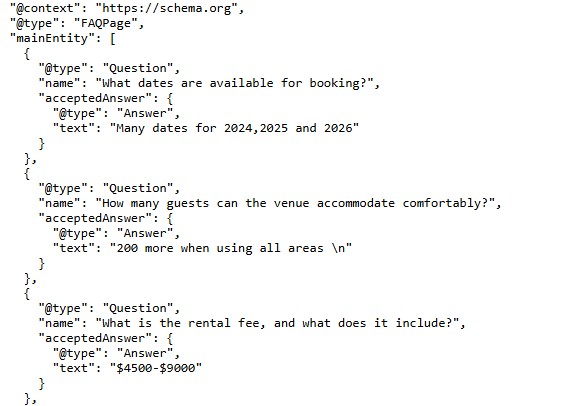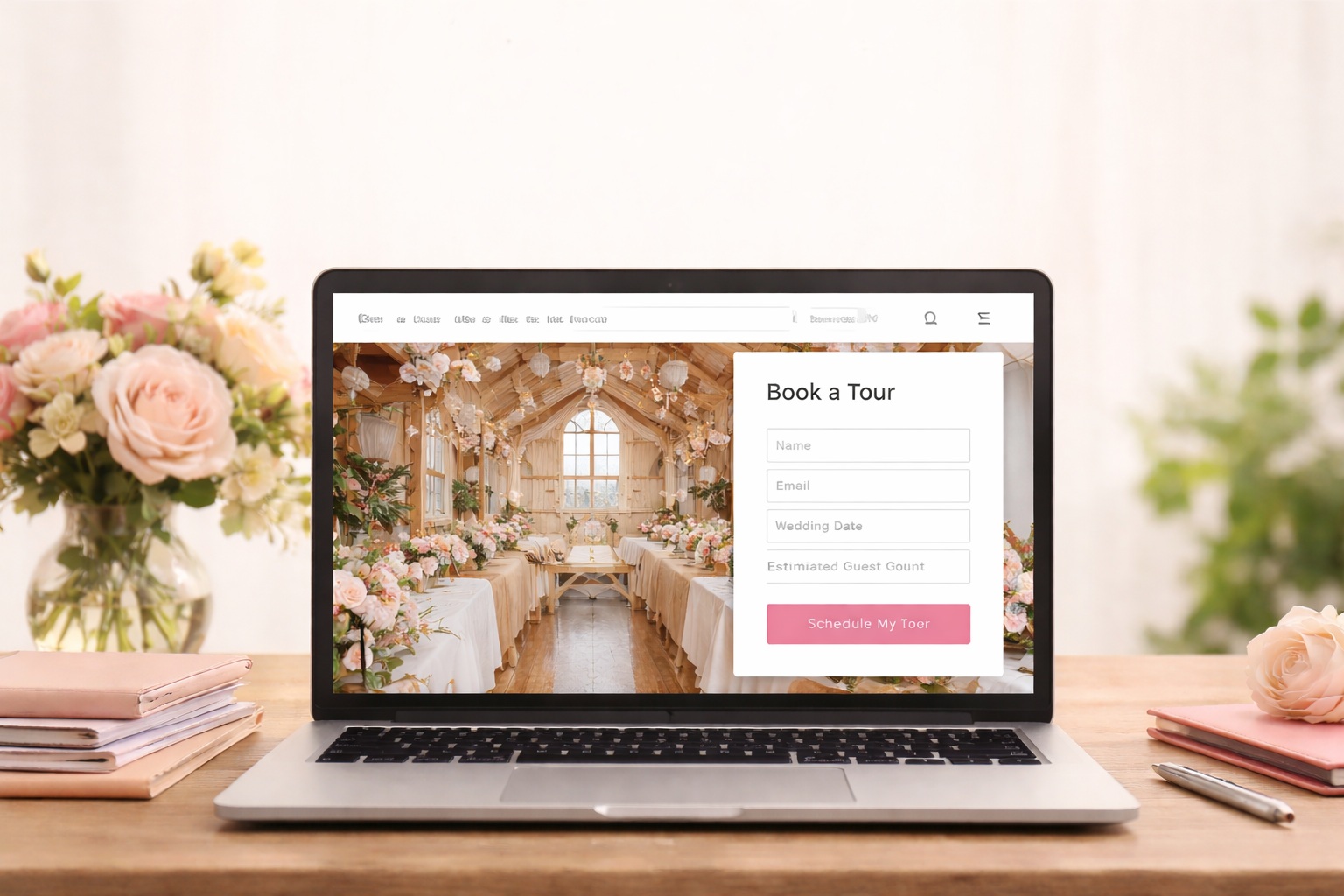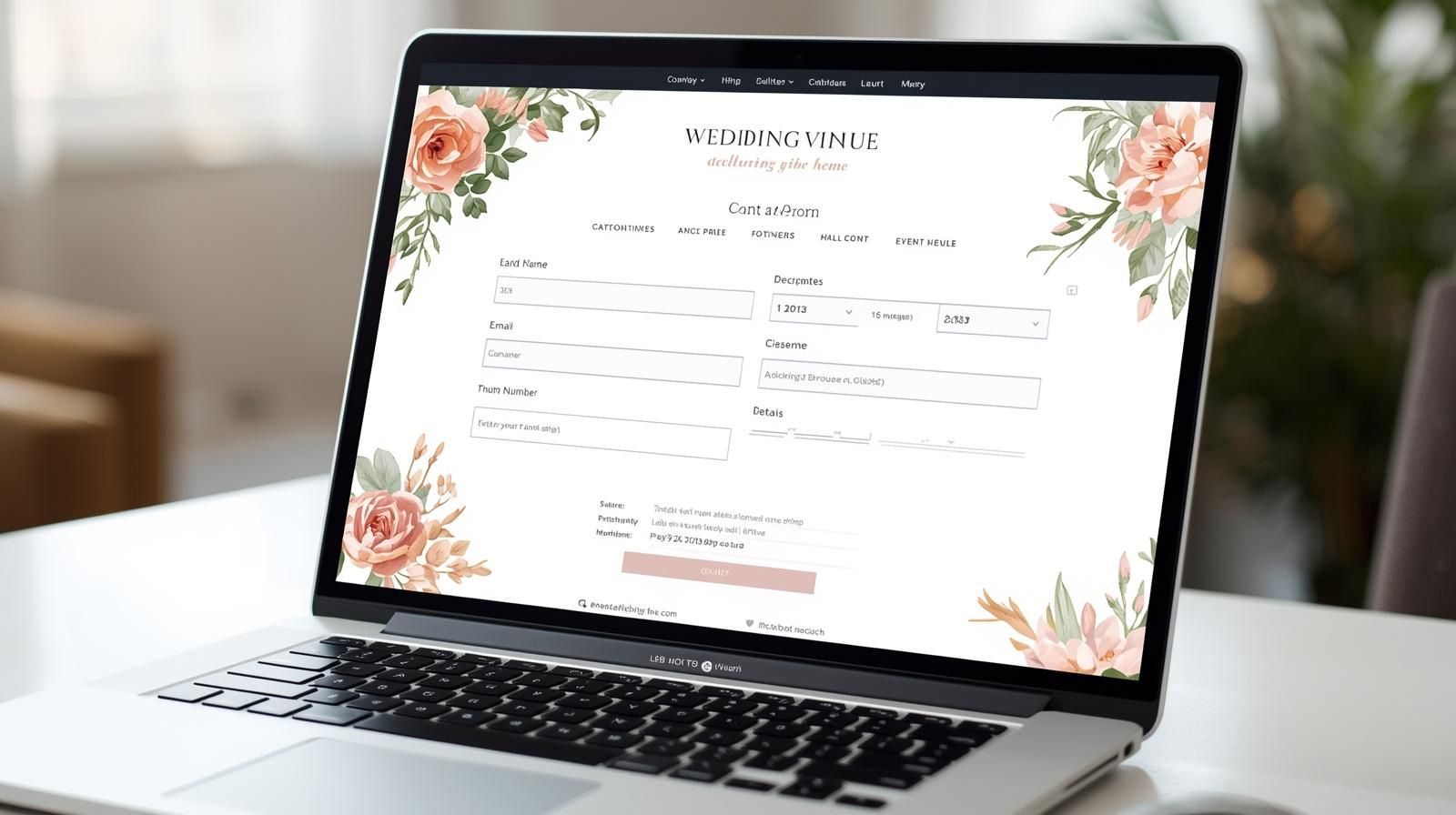When couples search for wedding venues online, they’re not just reading websites—they’re relying on Google’s search results to guide them. One way to improve how your venue appears in those search results is by adding schema markup to your website. Schema helps search engines understand your content better and can lead to rich results like reviews, location, and availability. Below are five essential schema markups every wedding venue website should be using to increase visibility and drive more bookings.
1. LocalBusiness Schema
Summary:
This schema helps Google understand that your venue is a physical location that serves couples in a specific area.
Why It Matters:
LocalBusiness schema allows your venue to show up in map results, local packs, and improves your chances of ranking for “wedding venues near me” searches.
What to Include:
Business name, address, phone number, business hours, website, and logo. You can even include coordinates and accepted payment types.
Pro Tip:
Use the @type: “EventVenue” or @type: “WeddingVenue” if available, nested under LocalBusiness for extra clarity.
2. Review Schema
Summary:
This schema tells search engines about your client reviews and ratings.
Why It Matters:
Review schema can generate star ratings in search results, which builds trust and increases click-through rates.
What to Include:
Aggregate rating, total number of reviews, average score, and individual reviews if applicable.
Pro Tip:
Don’t fake it. Google penalizes review markup that’s not visible on the actual page. Embed reviews directly on the page you mark up.
3. Event Schema
Summary:
This markup promotes events like open houses, bridal expos, or booking specials.
Why It Matters:
Schema for events allows your listings to appear in Google’s event-rich results, giving your promotions better visibility.
What to Include:
Event name, date and time, location, organizer, ticket info (if any), and description.
Pro Tip:
Use this on a dedicated “Upcoming Events” page and update it regularly to keep your structured data fresh and accurate.
4. Organization Schema
Summary:
This schema defines your venue as a business entity and enhances brand knowledge panels.
Why It Matters:
When paired with LocalBusiness, it gives Google a complete picture of your venue—especially useful for brand searches.
What to Include:
Organization name, logo, contact page URL, social profiles (using sameAs), and website URL.
Pro Tip:
Use this in your sitewide header or footer so it’s present on every page of your website.
5. FAQPage Schema
Summary:
Use this to mark up a frequently asked questions section on your site.
Why It Matters:
FAQ schema can trigger collapsible Q&A sections directly in search results, giving your venue more real estate on Google and reducing bounce rates.
What to Include:
Each question and answer as plain text, marked up correctly using FAQPage schema.
Pro Tip:
Use FAQs to address common concerns like pricing, date availability, and what’s included—then use schema to make it count for SEO.

Conclusion
Using schema markup on your wedding venue website is one of the most overlooked yet powerful SEO strategies. It not only helps search engines better understand your site—it also helps couples find you faster, trust your brand more, and take action. By implementing these five key schema types, you’ll stand out in search results and give your venue a clear advantage in a crowded market.
These five website fixes can turn your site into a lead machine. If you take the time to make these updates, you will see more inquiries, more tours, and more bookings. And that means more weddings at your beautiful venue.






